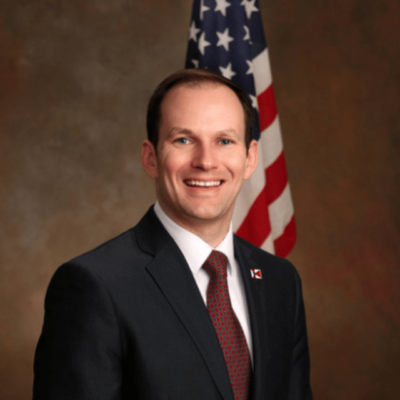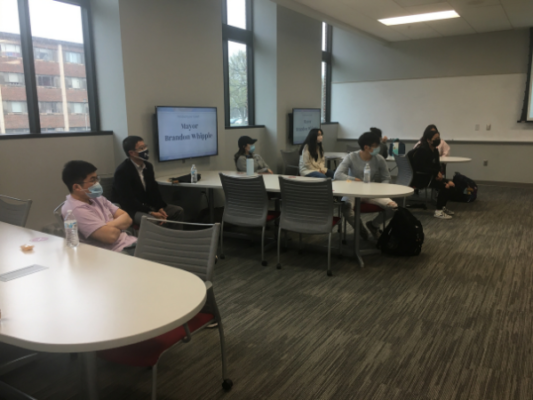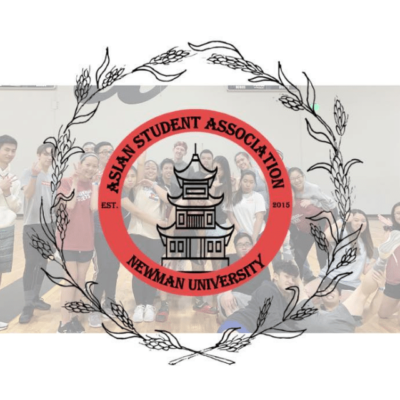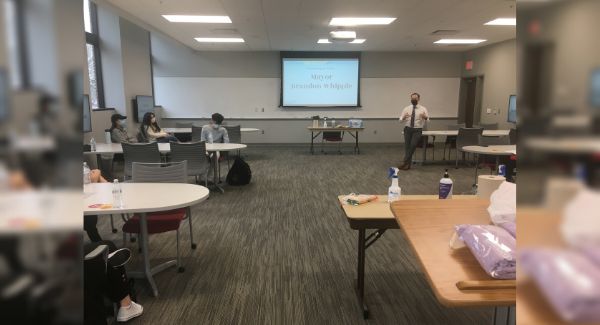In response to the recent acts of prejudice against and the rampant misconceptions of the Asian American community, and the Asian community as a whole, Wichita Mayor Brandon Whipple met with Newman’s Asian Student Association (ASA) in order to hear more from the Wichita community and raise awareness.
Executive members of ASA shared their thoughts on the meeting, saying they were pleased with how the opportunity came about and how it went.
ASA President Karen Do described both the circumstances of the opportunity and the discussions they had.

“I’m sure you’ve seen, on the news, these very tragic mass shootings happening. The first one that really struck people was the one that happened in Georgia with a person driving around, going to different spas, killing people — I think there were eight people total — six of them were Asian women.”
After referencing this tragic incident, she went on to say that she received a text from Joseph Shepard on the Thursday that it occurred, who wrote, “I’ve been seeing a lot of injustice happening to the Asian community and I wanted to reach out to you. I wanted to make sure that you felt like there was a safe space here, and that you could put on an event if you wanted to. Just know that I am here.”
She thanked him for reaching out, saying that she hadn’t heard any specific concerns from ASA, but that it meant a lot to know there are people like him who are willing to support them.
The next day, he texted again saying, “The mayor wants to reach out to people in our Asian American community here. If you have a meeting coming up, he’d love to come to your meeting,” to which Do accepted, grateful for the opportunity.

Whipple, as Do would put it, “just wanted to check in,” responding similarly to Shepard. In the meeting, Whipple asked a few questions and made sure to hear from everyone who wanted to speak before saying anything. After several members of ASA had commented, he stepped in, explaining that even though he could not feel what they were feeling, he wanted to be there for them and for the rest of the community, standing as an ally.
While she was careful not to make any baseless claims, Do proposed that in essence, the hatred and prejudice comes from a place of generalizations and the unknown. She elaborated on this point with thoughts from the mayor in her own words.
“When things happen to a community, it’s so easy to try and blame someone. We don’t want to just say, ‘We don’t know why this happened,’ we always look to blame something, or someone or a group of people.”
Continuing to comment on the many recent tragedies, Do shed some light on the misconception that has been stoking the flames of prejudice.
“When COVID hit, it came from one area, so people thought, ‘This is why it happened — these are the people to blame.”
This unknown, novel virus sowed seeds of fear, which led to anger and hatred as one demographic lashed out against another.
“All people that look Asian typically are generalized to be Chinese. So when you have this virus connected to the Chinese label, if you look even remotely Asian, they will target you. I would say, this anti-Asian hate that we see stems a little bit from COVID. It always existed but COVID was the fuel to the fire.”
Do also made it a point to address rebuttals to the claim that these shootings are acts of prejudice.
“I’m sure you’ve seen with the spa shootings, people are saying that his sex addiction was the main reason he shot up those spas, or I guess the chief was saying, ‘He was having a bad day that day.’ I’m not exactly sure if he did shoot those people because they were Asian, but it can’t be ignored that six of the victims were Asian.”

ASA Secretary Shayla To’s words reinforced the words of Do.
“Many of those victims worked in those salons to support their families after leaving Asia. This is not the America that they came to, sacrificing everything only to be faced with discrimination and being looked at as only a ‘race’ and not a real person with their own dreams and goals, favorite foods and homes that they go to at the end of the day.”
Most of the time, prejudice views are built on the foundation of an overly generalized demographic, and the notion that an entire population is responsible for something that they have nothing to do with, putting the burden of needless blame on countless lives. Do spoke at length on the generalization of the Asian community, among others.
“When you clump different cultures together, you lose a sense of identity, you lose a little bit of yourself, and sometimes people don’t realize it until it’s too late.”
She used a personal anecdote for the sake of exemplification.
“It’s kind of like my parents coming from Vietnam, they have to lose a little bit of themselves, their home country, to be able to start something new. Since I’m here, and I have the privilege and the ability to be able to speak up for myself, I need to be able to appreciate the culture that I came from, but also embrace the culture that I was raised in.”
To also weighed in on these pernicious generalizations with some of her own commentary.
“In regards to the dangers of lumping independent cultures and regions together, I think it is harmful because it fails to recognize and appreciate the vast diversity within the world. Even within the United States, there are so many differences of regions that range from the food, language, accents, mannerisms and customs. A person from the East Coast is likely to have very different experiences compared to someone from the Midwest, and that applies to other countries as well. China is different from Japan, Vietnam, Korea, Malaysia, India and the many other countries, and it’s unfair to lump all their separate beauties and uniqueness into one idea.”
As she emphasized the importance of cultural independence, Do mentioned collaborative projects with Black Student Union (BSU).
“If ASA is collaborating with BSU, we need to understand that we are similar in some of our struggles but also different in our cultures.”
Though coming up with a way to reverse prejudice, ignorance and even simple misunderstandings may seem impossible, Do and To ended with some little things that everyone can do to start taking steps in the right direction.
“Reaching out to other people and saying, ‘I don’t know what it’s like, but I really feel for you,’” Do explained. “That’s something that Mayor Whipple said, ‘I’m here for you in any way that you need me to be here for you.’”
She also warned about the bystander effect, saying that simply standing up against acts of injustice on a smaller scale can make a big difference.
“Recognizing the need for change is the first step,” concluded To.



